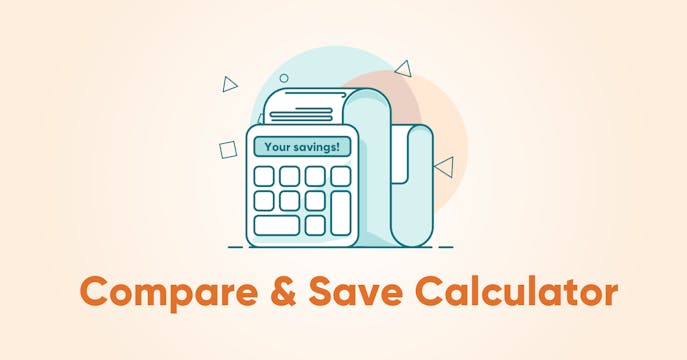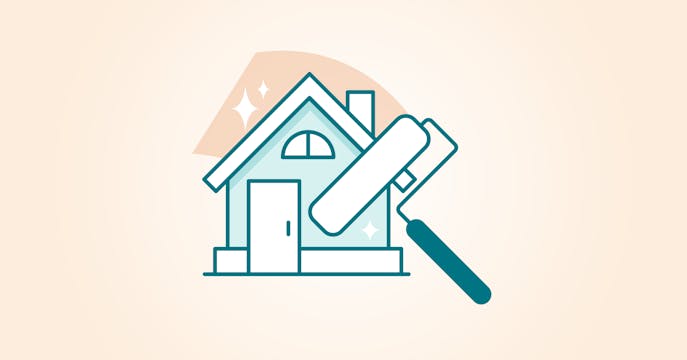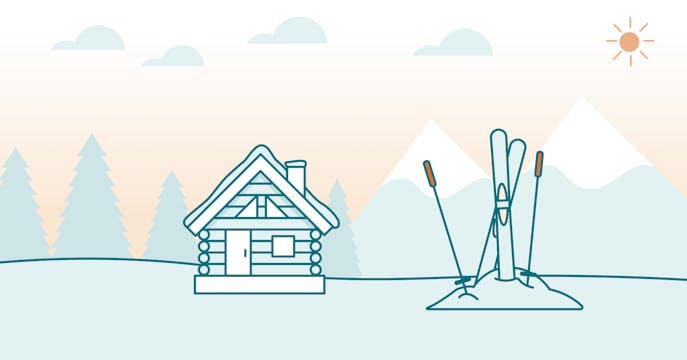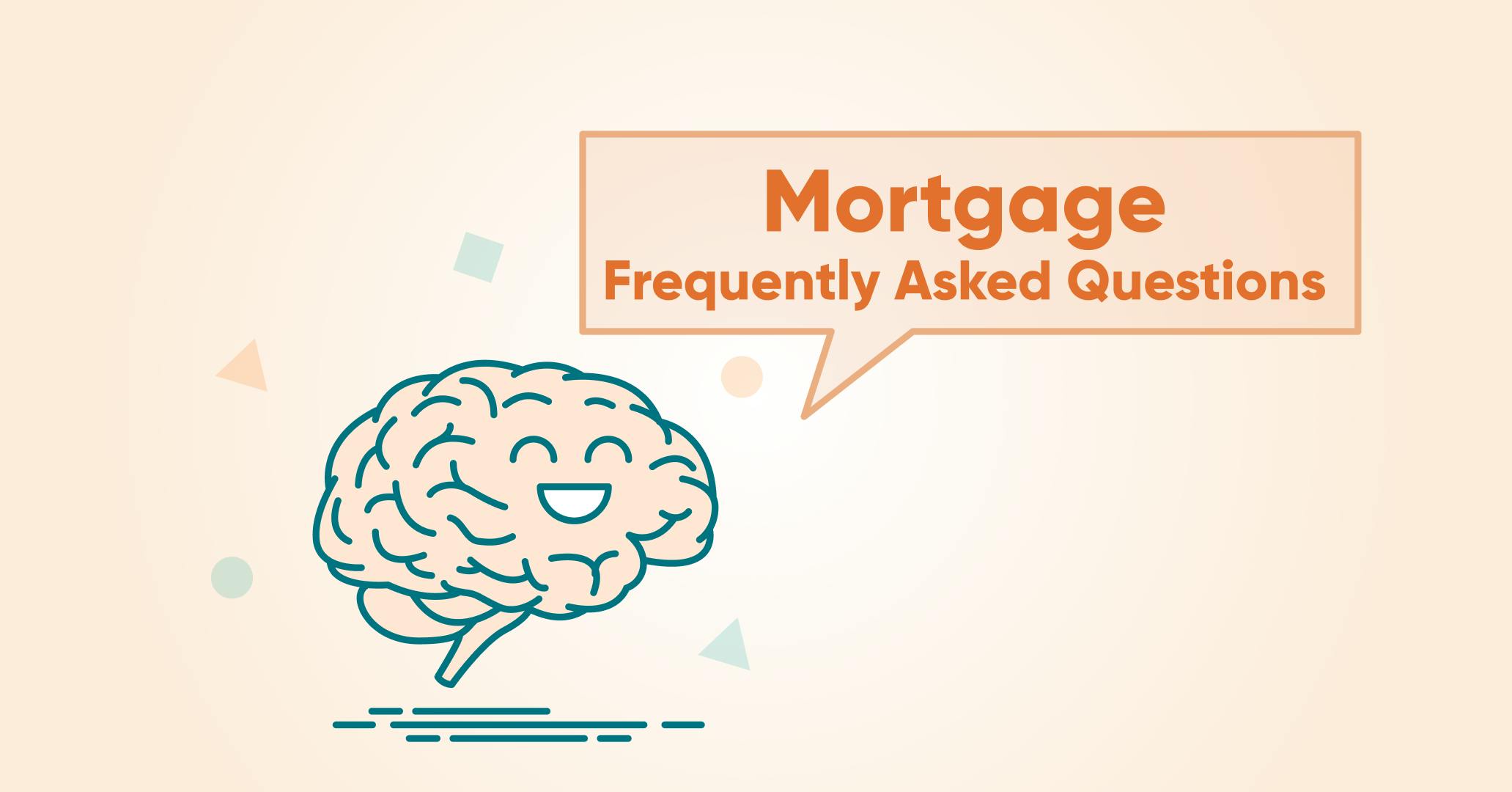Mortgage FAQs
You've asked, and we've got the answers (because we're mortgage brainiacs).
Your mortgage is a big decision, and there's a lot to know. Check out some of the answers below, or give us a shout. We're here to help answer your questions quickly, in person or online.
How much can I afford to pay for a home?
To get an idea of how much you can afford, you'll need to know your taxable income, along with any outstanding debts and monthly payments.
- First (for purchasing a principal residence) calculate 39% of your income for use toward a mortgage payment, property taxes and heating costs. If applicable, include half of estimated monthly condominium maintenance fees.
- Next, make a second calculation, this time 44% of your taxable income. Then deduct all of your monthly debt payments, including car loans, credit cards, and line of credit payments.
- The lesser of the first or second calculation will be used to help determine how much of your income may be used towards housing-related payments, including your mortgage payment. These calculations are based on lenders' usual guidelines.
In addition to considering what the ratios say you can afford, we'll help you determine exactly how much debt you’re comfortable servicing. If that amount is less than 39% of your income, you may want to settle for the lower amount rather than stretch yourself financially. Make sure you don't leave yourself 'house poor,' with not enough funds to spend on other things, like vacations. Structure your payments so that you can still afford simple luxuries. You'll also need to qualify for your mortgage amount, with new stress-test regulations released by the federal government.
Use our handy Mortgage Affordability Calculator for help with your numbers.
What is a home inspection and should I have one done?
In a word, yes. A home inspection is a visual examination of the property to determine the overall condition of the home. It should be done by a professional home inspector.
In this process, the inspector should be checking all major components, such as roof, ceilings, walls, floors, foundations, crawl spaces, attics, and retaining walls. And all systems, such as electrical, heating, plumbing, drainage, and exterior weather proofing. The results of the home inspection should be provided to the purchaser in written form, in detail, generally within 24 hours of the inspection.
A pre-purchase home inspection helps to protect your interests in an impending property investment, by uncovering minor or significant issues (including major structural repairs) that may factor into your decision.
It can also add peace of mind to your choice, and help you plan ahead for any repairs or maintenance that may be needed. A home inspection helps remove a number of unknowns and increases the likelihood of your successful purchase.
What is the minimum down payment needed to purchase a home?
A minimum down payment of 5% is required to purchase a home, subject to certain maximum price restrictions. Other situations, such as being self-employed or having poor credit may also impact the required down payment amount.
In addition to the down payment, you must also be able to show that you can cover any applicable closing costs, such as legal fees, disbursements, appraisal fees (at True North Mortgage, we cover most appraisal fees), and a survey certificate, where applicable.
Regardless of the amount of the down payment, at least 5% of it must be from your own cash resources, or it can be in the form of a gift from a family member. For non-residents and Newcomers to Canada, that amount typically rises to 10%, and cannot be borrowed.
Lenders will generally accept a gift from a family member as an acceptable down payment. In this case, the donor will need to provide a signed letter stating that it's a true gift, not a loan.
Mortgages with less than 20% down must have mortgage loan insurance provided by either CMHC, Sagen or Canada Guaranty.
Use our accurate Mortgage Payment Calculator for help with your numbers.
What is mortgage loan insurance?
Mortgage default insurance is legally required on mortgages with a Loan-to-Value (LTV) ratio greater than 80% (often called a high-ratio mortgage). It protects lenders against the risk of mortgage default and foreclosure by the borrower.
Usually paid by the borrower, the premiums for default insurance range from 0.50% to 7.0%. They can be added directly onto the mortgage amount, or paid as a lump sum before the mortgage is advanced. This type of insurance is not the same as mortgage life insurance.
In Canada, mortgage default insurance is provided by three companies: Canada Mortgage and Housing Corporation (CMHC), Sagen and Canada Guaranty. CMHC is a Crown corporation, while the other two are approved private corporations.
Read More: What is an Insured Mortgage?
What is a conventional mortgage?
A conventional mortgage is usually one where the down payment is equal to 20% or more of the purchase price, with a Loan-to-Value (LTV) of 80% or less. It typically does not require mortgage default insurance, and so the borrower does not have to pay these insurance premiums. Mortgage interest rates may be slightly higher, however, for lenders to offset the lack of default insurance.
Read More: Why a Bigger Down Payment Can Result in a Higher Rate
How does bankruptcy affect qualification for a mortgage?
After bankruptcy, it can be a challenge to re-establish your credit in securing a funded mortgage. However, depending on the circumstances surrounding your bankruptcy, some lenders may consider providing mortgage financing. Contact one of our friendly, expert brokers for more details.
Read More: How Bankruptcy Can Affect a New Mortgage
How will child support affect your mortgage qualification?
For child support and alimony paid by you to another person, this amount is typically deducted from your total income before determining the size of mortgage you can qualify for.
If child support and alimony are received by you from another person, the amount is typically added to your total income before determining the size of mortgage you can qualify for — provided proof of regular receipt is available for a period of time determined by the lender.
Can I get a mortgage to purchase a home?
Yes, subject to qualification. With current historically-low rates, even purchasers with 5% down may qualify to buy a home and make improvements to it (get pre-qualified here). Any down payment under 20% will need mortgage default insurance obtained through CMHC, Sagen or Canada Guaranty.
If you're a first-time home buyer, there are government programs and rebates to help you get into the real estate market.
If you already own your home, and want to purchase your next one to live in, you'll have a few more details to think about this time around (we can help with that, of course).
If you're buying a home that needs renovations right off the start, a Purchase Plus Improvements mortgage can include these upgrade costs along with home price (some conditions will apply). This option eliminates the need to finance the home and renovations separately.
Can I use gift funds as a down payment?
Most lenders will accept down payment funds that are a gift from family. A gift letter signed by the donor is usually required to confirm that the funds are a true gift and not a loan. If mortgage default insurance is needed (with down payment less than 20%), the lender or insurance provider may require the gift money to be in the purchaser's possession before the application is sent to them for approval.
What is a pre-approved mortgage?
A pre-approved mortgage is a solid idea of the maximum amount of mortgage that you qualify for, along with an interest rate guarantee from a lender for a specified period of time (usually 60 to 120 days). It's usually one of the first steps a home buyer should take when looking for a home or property.
A pre-approval does not absolutely guarantee that you'll receive the funds (as the final amount may be subject to conditions), but it's a very good indicator of the maximum amount you should consider when looking to purchase.
Your pre-approval process requires that you provide financial and credit score information in order to determine what size of loan you're eligible for, based on lender and government requirements and regulations. And, your down payment will be factored into the amount.
Most realtors prefer that you have a pre-approved mortgage in place before they take you out looking for a home or property. That way, they know they're showing you the right properties within your affordable price range.
Read More: Pre-Qualify for a Mortgage in Minutes
How early can I renew my mortgage?
You can start your mortgage renewal process as early as 120 days (4 months) before the end of your current term, even if you haven't yet received your renewal offer. Lenders are only legally required to send your renewal statement at least 21 days before the deadline. Starting earlier provides more time to negotiate or look around for a better rate or mortgage fit.
Whether you've received your lenders' renewal offer, or ask them for it, it may come with a rate guarantee that covers the time frame left before your deadline. If rates happen to drop before the actual maturity date, the lender may also adjust your interest-rate offer lower.
The renewal rates first offered by your lender are often not the best ones you can get. They're typically based on posted rates with a 'discount' to help you feel that you're getting a deal. So, take this time to check out the possibility of getting a lower interest rate, either with your current lender or another one. You may find a better offer that will help you save money over your next term.
Don't sign without talking to us — we can do all the research and outline the process for you, and you'll have peace-of-mind that you're getting the best rate and mortgage fit for your situation.
What is a down payment?
Very few Canadian homebuyers have the cash available to buy a property outright. Most of us will turn to a financial institution for a mortgage, which can be the first step in a potentially long-standing mortgage relationship. But even with a mortgage, you'll first need to raise money for a down payment.
A down payment is the portion of the purchase price that you provide, which secures at least a small amount of equity in your home or property. It also indicates your financial commitment towards such a large purchase and resulting mortgage loan. The amount of your down payment should be determined well before you start house hunting, or before getting a pre-approval.
The larger the down payment you can provide, the less your home or property will cost in the long run. A smaller mortgage also means the potential for lower interest and insurance costs, which can add up to significant savings over the life of your loan.
Can I buy a home with as little as 5% down?
Yes, it's possible to buy a home or property in Canada with a minimum of 5% down (subject to maximum price restrictions). Lenders are now able to offer this type of mortgage funding thanks to mortgage loan (default) insurance.
This default insurance is legally required on any mortgage with a down payment of less than 20% of the property price (called a high-ratio mortgage), and protects the lender from borrower default or foreclosure.
The premiums of mortgage loan insurance are usually paid by the borrower as a one-lump sum or are factored into the monthly mortgage payments. Borrowers are still responsible for all other associated fees, such as application, appraisal and legal costs.
If you're a first-time home buyer, there are also government programs and rebates to help you get into the real estate market.
Read More: First Home Savings Account
How can you pay off your mortgage faster?
Paying off your mortgage faster means you could save significant money on interest costs. Plus, you'll increase the equity in your home or property at a faster pace, as you pay down more principal. It's important to have the right mortgage product right off the start, so that you have the flexibility you need to achieve your financial goals.
Depending on the lender and flexibility of your current mortgage, to pay off your mortgage faster, you can:
- Switch from a monthly to a biweekly accelerated payment schedule, which increases your payments to put more down on the principal.
- Make principal lump sum payments annually, or more often if lender allows.
- Double-up your monthly payment.
- Select a shorter amortization when you renew your mortgage term.
Read More: Pre-Payment Penalties and Privileges
How can I use RRSPs to help buy my first home?
If you're a first-time home buyer, the federal government has programs to help, including the Home Buyers' Plan (HBP). This program allows you to withdraw up to $60,000 in RRSP savings ($120,000 for a couple) to help finance your first down payment, and to repay the withdrawn funds within a 15-year period.
Do you already have money saved for your first down payment? It may make good financial sense to apply your down payment through the Home Buyers' Plan — provided you have enough RRSP contribution room for the intended amount. You may receive a tax deduction that could be applied back to repaying the RRSP withdrawal amount, or put towards other home expenses.
Our friendly, expert brokers can help you through all the details for this program, and others offered by the government. As well, you can talk to your financial advisor about the benefits and considerations of the HBP. In addition to down payment info, we can help you save more with your best rate and mortgage fit.
Read More: First Home Savings Account
What are the costs associated with buying a home?
There are several costs that you'll be responsive for when buying a home or property. Here's a quick list for reference.
- Down payment. You'll need to have at least 5% down, maybe more, depending on your situation. To qualify for a conventional mortgage, you will need a down payment of 20% or more.
- Deposit that counts towards your down payment, that is required by the seller to show your commitment to buy their property.
- Home inspection fee. We highly recommend a professional home inspection, which will bring to light areas of repair or maintenance and to ensure the house is structurally sound. Ask for a written report for your future reference.
- Mortgage default insurance (including PST) if you are putting less than 20% down. These premiums can be paid in a lump sum at the beginning, or factored into your mortgage payments.
- Land Transfer Tax (LTT). Calculated as a percentage of the purchase price of the property, with the amount varying depending the province.
- Legal fees, disbursements and title insurance. These are costs that are associated with or are obtained through your solicitor. Fees for these services may vary significantly.
- Other closing costs, such as property insurance, tax or utility adjustments.
- Moving costs. Don't forget to include the cost of moving your belonging, or paying for cleaning or upgrading before you officially move in.
For an easy, complete breakdown of what costs apply to your particular situation, please contact one of our True North Mortgage specialists. They'll walk you through what you need to consider, while getting your best rate and mortgage solution — from a lender that fits you. They have also have trusted relationships for mortgage-related help, if you need any referrals.
What should the length of my mortgage term be?
The length of a mortgage term can vary from six months up to 10 years. The term you choose will depend on your current financial situation, your short and long-term goals, your tolerance for risk, and even a choice between a variable vs. fixed rate.
The majority of homeowners opt for a 5-year term to settle in with a particular rate (hopefully the best one you can get), especially if rates are lower. A shorter-term mortgage (1 to 3 years) may appeal to those who want to go with a variable rate for more savings (with a higher risk if rates go up), or if they think they may move again soon.
In deciding on which term is best for you, here are some questions to consider:
- Do you plan to sell your house in the short-term without buying another? If so, a shorter mortgage term (6 months to 3 years) may be the best option.
- Do you believe that interest rates have bottomed out and are not likely to drop more? Then a longer mortgage term (4-10 years) may be the right choice for you.
- Similarly, if you think rates are currently high, you may want to opt for a short to medium length mortgage term, with the hope that rates drop by the time your term expires.
- Are you looking for security as a first-time home buyer? Then you may prefer a longer mortgage term, so that you can budget for and manage your monthly expenses.
- To save some money, are you willing to follow interest rates closely and risk having increased mortgage payments following a renewal? Then a shorter mortgage term will provide you with the ability to reduce your period of higher risk.
What are the monthly costs of owning a home?
Owning your own home can be a very rewarding personal and financial venture. But, it also comes with ongoing expenses, including maintenance and upgrade costs. Preparing ahead and continually budgeting will help you plan and pay for them as they come up.
Here's a list of some costs to owning a home:
Your Mortgage Payment
For many home buyers, this is the largest monthly expense. The actual amount of your mortgage payment can vary widely and is based on a number of variables, including your payment schedule, mortgage term and amortization.
Property Taxes
Property taxes are charged by the municipality you live in, and are collected to pay for many civic services provided, such as garbage and recycling collection, snow removal and road maintenance, and policing and fire protection.
Your taxes are typically paid in two ways — either by remitting them directly to your municipality monthly or yearly, or many lenders will allow them to be added to your monthly mortgage payment. For the latter option, your lender then takes on the responsibility of paying your municipality for your property taxes.
School Taxes
In some municipalities, these taxes are integrated into property taxes. In others, they are collected separately and are payable in a single lump sum, usually due at the end of the current school year.
Utilities
As a home owner, you'll be responsible for all utility bills, including heating, gas, electricity, water, telephone and cable.
Maintenance and Upkeep
Owning a house comes with the cost of painting, roof repairs, electrical and plumbing, walks and driveway, lawn and tree care, and snow removal. A well-maintained property helps to preserve your home's market value. It also enhances the neighbourhood, and depending on the kind of renovations you make, could even add further value to your property.
Many owners plan out maintenance and upkeep schedules to occur at certain times of the year, to help with budgeting and the booking of different trade services, if needed.
Should I go with a short or long-term mortgage?
A longer-term mortgage is worth considering if you have a busy life and don't have time to watch mortgage rates. Our 4, 5, 7 and 10-year mortgages help you take advantage of your best possible rate (which are at a current historical low), while enjoying long-term security.
If you value flexibility, a shorter-term mortgage will often allow you to take advantage of lower rates to save money, while being less of a term commitment.
At True North Mortgage, our friendly, expert brokers really know mortgages, and can quickly lay out the pros and cons of different term lengths based on your current financial situation. They'll help you discuss the options for your short and long term goals, and find the right term and lender to match your needs.
What is a fixed-rate mortgage?
The interest rate on a fixed-rate mortgage is set for a pre-determined term, usually between 6 months to 10 years. A fixed-rate offers the security of knowing what you will be paying for the term selected.
Read More: How Government Bond Yields Relate To Mortgage Rates
What is a variable-rate mortgage?
The interest rate on a variable-rate mortgage is tied to the prime lending rate, and will increase or decrease along with it.
If prime goes up, so does your payment — or if your payment is static, then more of your payment will go towards interests costs, and less down on the principal. If prime goes down, your payment will also go down, or more more put towards the principal and less for interest.
Read More: Variable vs Fixed Rate Mortgages
Have more mortgage questions? We're at your service.
great advice, for all your needs

Compare & Save Calculator
See for yourself how much you can save with our lower rates.
Learn More
Purchase Plus Improvements
Need to renovate? Welcome to loan sweet loan. One manageable mortgage, one best rate.
Learn More
Vacation and Second Homes
Eyeing that second property? Gain ground with our simpler mortgage process and better rates.
Learn More
